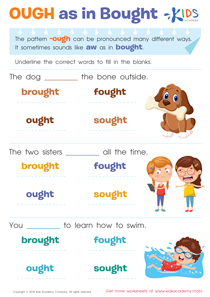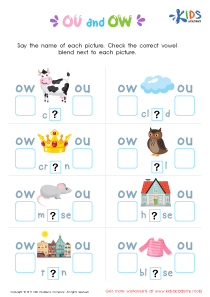Vocabulary expansion Normal Grade 2 Long And Short Vowel Worksheets
4 filtered results
-
From - To
Enhance your second grader's language skills with our engaging Long and Short Vowel Worksheets designed for vocabulary expansion! These printable resources focus on helping young learners differentiate between long and short vowel sounds while enriching their word bank. Our worksheets feature fun activities that will captivate your child's attention, allowing them to practice and apply new vocabulary in various contexts. Perfect for both classroom and home use, these worksheets provide valuable practice to ensure comprehension and retention. Support your child's literacy journey and unlock their potential with creative and interactive vocabulary exercises tailored for Grade 2!
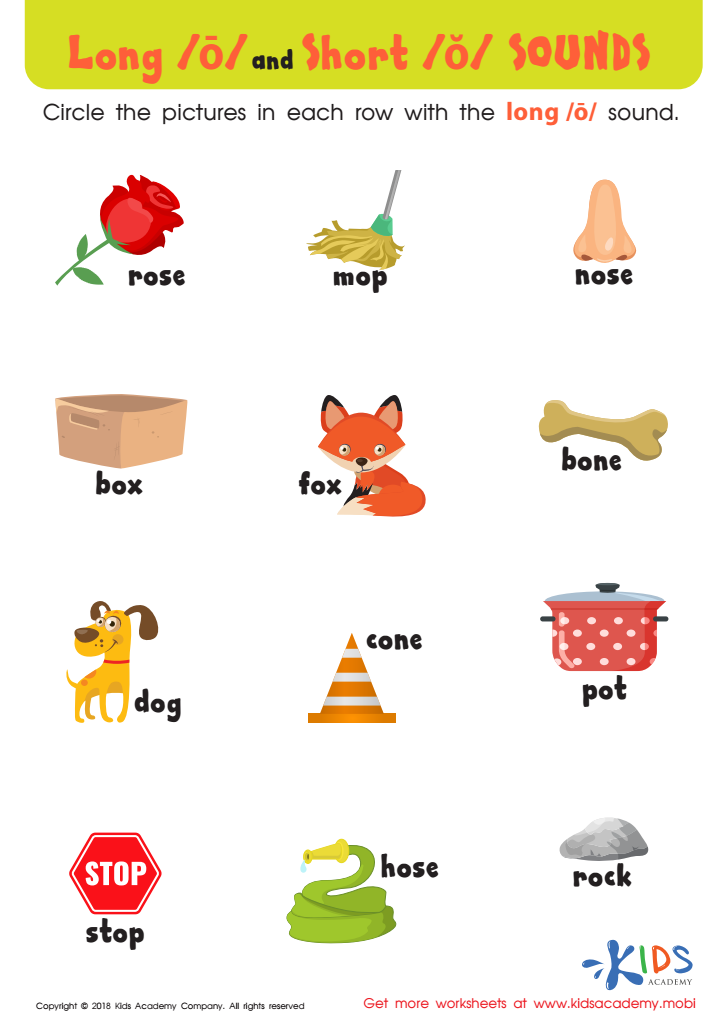

Reading: Long O and Short O Sounds Worksheet
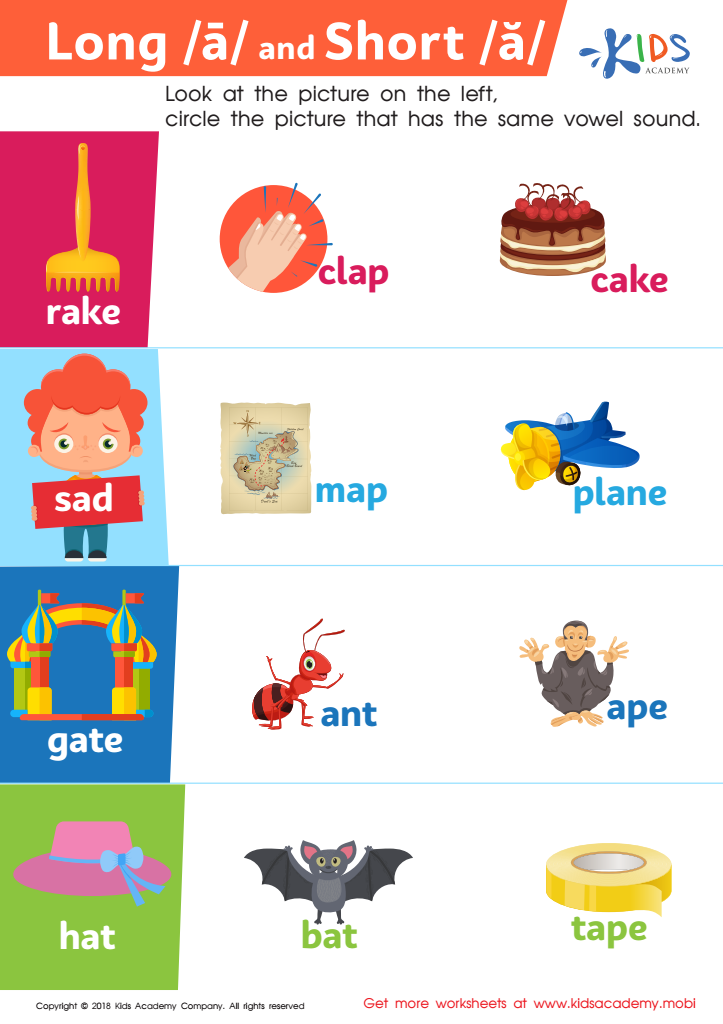

Reading: Long a and Short a Worksheet
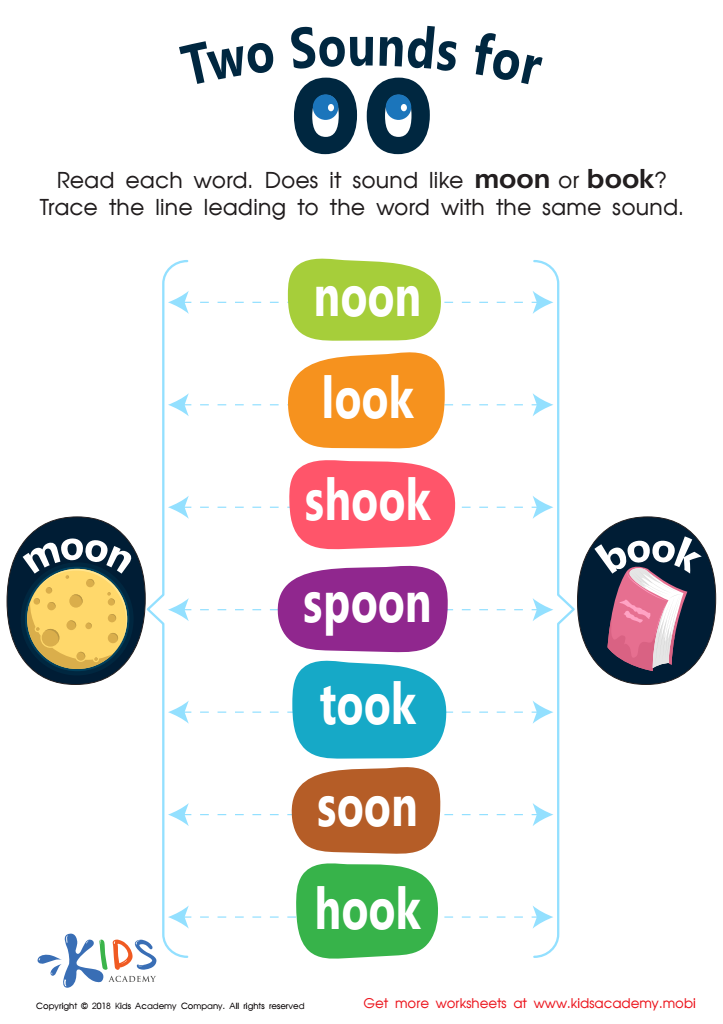

Two Sounds for OO Worksheet
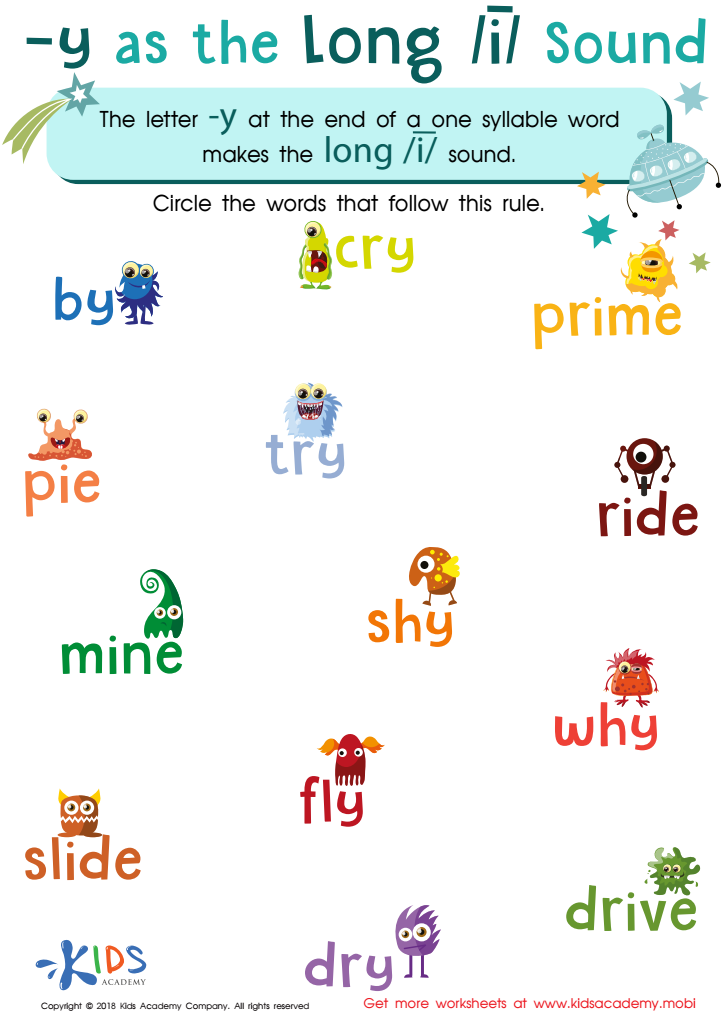

Reading: Y as Long I Worksheet
Vocabulary expansion is crucial for second graders, particularly in the context of long and short vowels. At this stage, children are transitioning from learning to read to reading to learn. Building a robust vocabulary enhances their reading comprehension, fluency, and overall academic performance. Understanding long and short vowel sounds helps children decode words, leading to improved reading skills and enjoyment of literature.
Parents and teachers should recognize that vocabulary growth supports cognitive development. An expanded vocabulary allows children to express themselves more clearly and engage more deeply in conversations, fostering their communication skills. This is vital not only for academic success but also for social interactions.
Moreover, students with a strong vocabulary foundation are more likely to develop critical thinking skills, enabling them to analyze and explore different concepts effectively. Encouraging the use of both long and short vowel words can also promote linguistic diversity, exposing children to various vocabulary that enhances their language comprehension.
In essence, fostering vocabulary expansion is a key element in second graders' educational growth, influencing various facets of their learning journey and preparing them for future academic challenges. Both parents and teachers play a pivotal role in nurturing this essential aspect of language development.
 Assign to My Students
Assign to My Students






